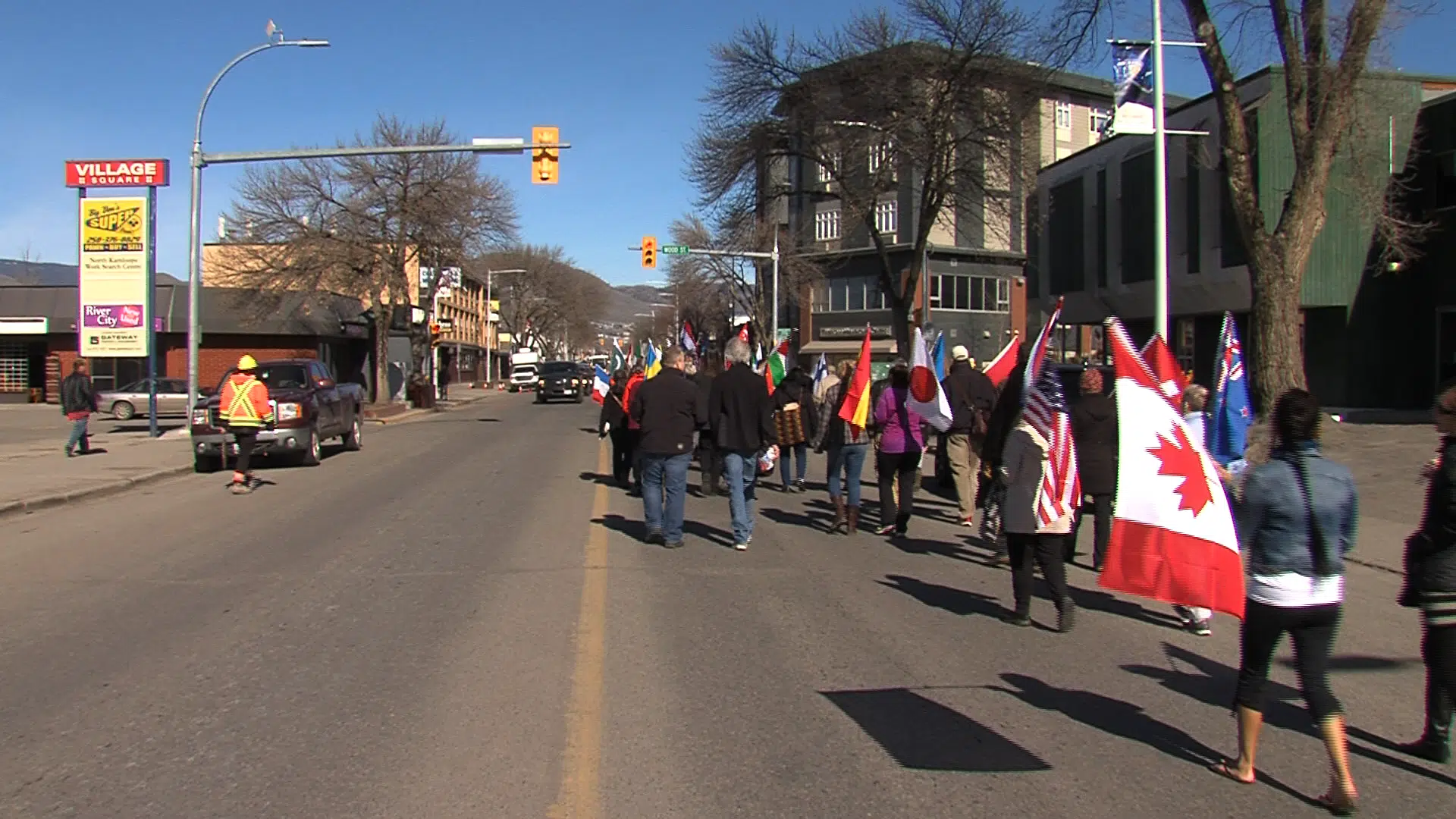
Cultural diversity walk in Kamloops aims to end racism
KAMLOOPS — Canada has a long history of welcoming newcomers from countries around the world. Most recently, Canada has opened its doors to more than 25,000 Syrian refugees who have fled their homeland.
But for some, discrimination will play a role as they adjust to their new lives in Canada. On Friday, Kamloops Immigrant Services hosted the Walk to Embrace Cultural Diversity, an opportunity to help break down the barriers.


